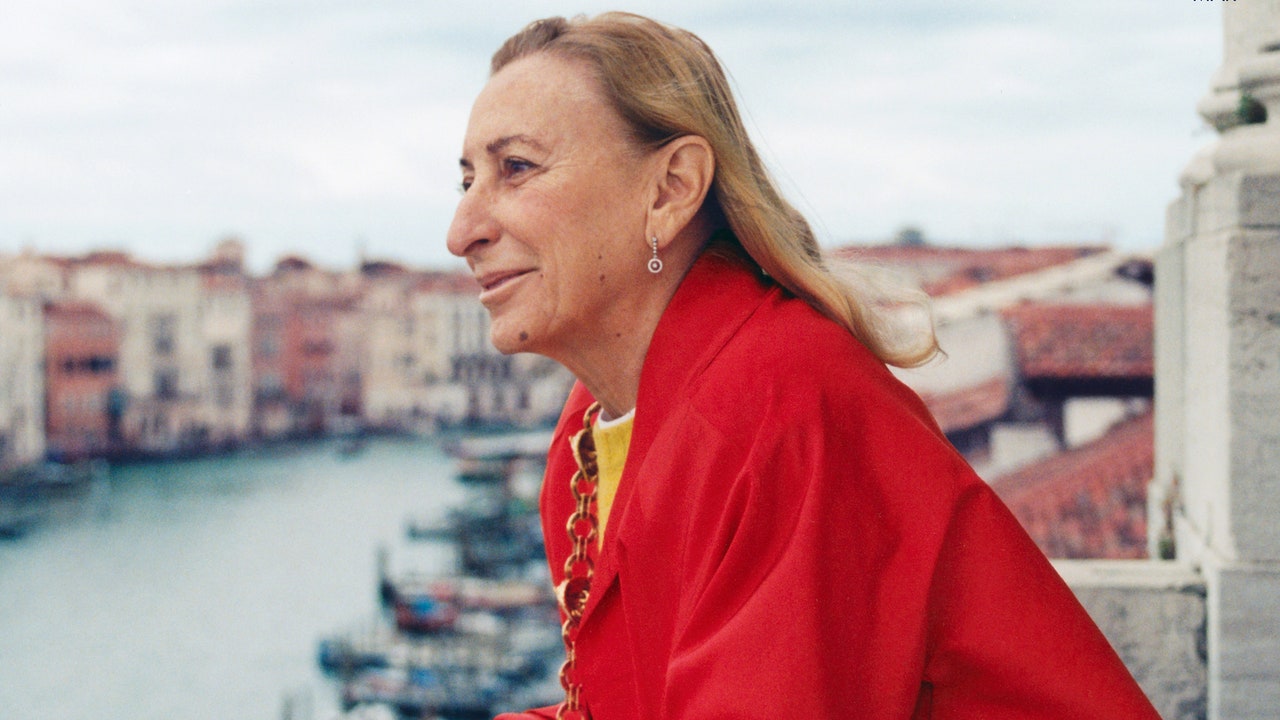Prada likes the word useful; she dislikes the word luxury, which she finds vulgar. And here is the rub, the nub, the dichotomy that runs through her life and her work: Miuccia Prada is an extraordinarily successful fashion designer selling beautiful, expensive clothes and accessories. She is also—something confirmed with a nod when I asked—politically left of center, with a doctorate in political science (she also studied mime for five years), a former member of the Italian Communist Party who marched for women’s rights. “I always thought there were only two noble professions: politicians or doctors,” she told me. “Doing clothes [while coming from] a group of very important intellectuals—for me it was like a nightmare. I was so ashamed, but anyway I did it…. The love of beautiful objects prevailed.” Her political opinions have mostly had to be kept private. “I work for a luxury company,” she said, laughing at the irony. “It’s not perfect for a political position like mine—this was always the biggest contradiction in my life.”
Miuccia Prada was born Maria Bianchi into a well-heeled bourgeois Milanese family in 1949. Her grandfather Mario Prada had founded Fratelli Prada (“Prada Brothers”), a leather-goods shop, in 1913; her mother took over the family business in the 1950s.
“When I was young,” Prada told me, “I always wanted to be different.” She immersed herself in the activist generation of the 1960s, but she always loved clothes—while everyone else was wearing jeans at demonstrations, she famously wore Yves Saint Laurent.
And while she rebelled against the bourgeois assumptions of her upbringing, she joined the family business, taking it over from her mother in 1978.
It comes as little surprise, given her youthful background in agitprop and protest, that Prada remains very much aware of the wider world far outside fashion—its wars and suffering, its array of crises and injustices. “That’s why I am always ashamed,” she told me. Publicly but quietly, as well as personally, Prada supports a myriad of causes, including cancer research, but she tends to be discomfited by showy fundraising galas, preferring engagement to mere charity.



She could start by selling a Prada ‘emperor’s outfit’ to the bourgeoisie for a mint, then use the proceeds to fund a revolution while we laugh at the emperors who paid a fortune to be naked while we overturn their world order.
You can cut costs of production by using fewer materials and use Apple marketing tactics to insist that these clothes don’t leave the person spending a lot of money to be naked.
Sending a hologram AI of Steve Jobs around the world to do the marketing.